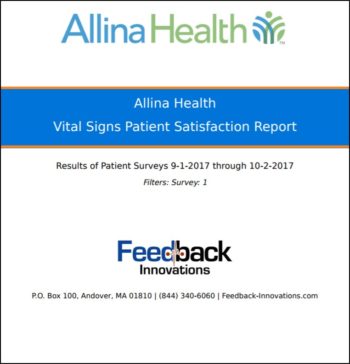
Patient satisfaction is one of the key metrics our hospital partners are measured by, and there is little doubt that we will eventually see the same trend move into the prehospital world. To prepare for this we need to better understand how to train our providers, measure their success and remediate when necessary in the area patient satisfaction.
This can oftentimes be a challenging thing to measure as satisfaction isn’t always directly correlated to outcome. If we provide lifesaving measures that directly impact our patient’s outcome, yet he/she is not happy with the care should we be penalized? Although on its surface this question seems like an obvious no, we must look at the specific reasons why our patient wasn’t satisfied with our service. We have a tendency when faced with complaints to dismiss them and fall back on the fact that we provided quality patient care, but that isn’t enough.
During initial training do we taking opportunities to reflect on providers affect and how they communicated with the patient? Are we teaching them how to appropriately display emotion and empathy while managing patients in difficult situations and are we providing direct feedback when we see these issues occur? Our quality improvement programs are designed to flag somebody who deviates from a protocol or provides an inappropriate medication dose, but do we similarly track and provide feedback when they’re rude to a patient’s family member or make jokes at a patient’s expense? Systems such as Allina Health are now using their patient satisfaction survey results as part of their annual review for their EMS providers. This allows them to tie patient satisfaction to other performance measures and gives them a mechanism to document and track improvements.
rude to a patient’s family member or make jokes at a patient’s expense? Systems such as Allina Health are now using their patient satisfaction survey results as part of their annual review for their EMS providers. This allows them to tie patient satisfaction to other performance measures and gives them a mechanism to document and track improvements.
When we do find a deficiency in a provider’s patient satisfaction, we need a plan to correct it just as we would have a plan to correct any clinical deficiency. Just like remediating any clinical deficiency there are several approaches, but it should start with speaking to the people involved to determine a root cause of why this is happening. Is it a systemic problem, is it an individual training issue or is it a personality issue that may be difficult to overcome? Remediation can be done with hands-on training in simulated environments to try to stress the provider to spot any weaknesses we may be able to correct. Or perhaps we need a system-wide training in some of the softer skills we don’t often get during our initial education such as communication and customer service.
We often forget that healthcare is a service industry, there are certain things our patients (customers) expect from us. They expect that we are going to be courteous, they expect that we are going to be empathetic and most of all they expect we are going to be kind regardless of the situation. This should be something we focus on just as we do with our cognitive knowledge and our psychomotor skills. But just like anything we are trying to improve, we must have a mechanism to track and trend this over time to ensure that any changes we make in our training or our system are actually making improvements rather than just making us feel good.